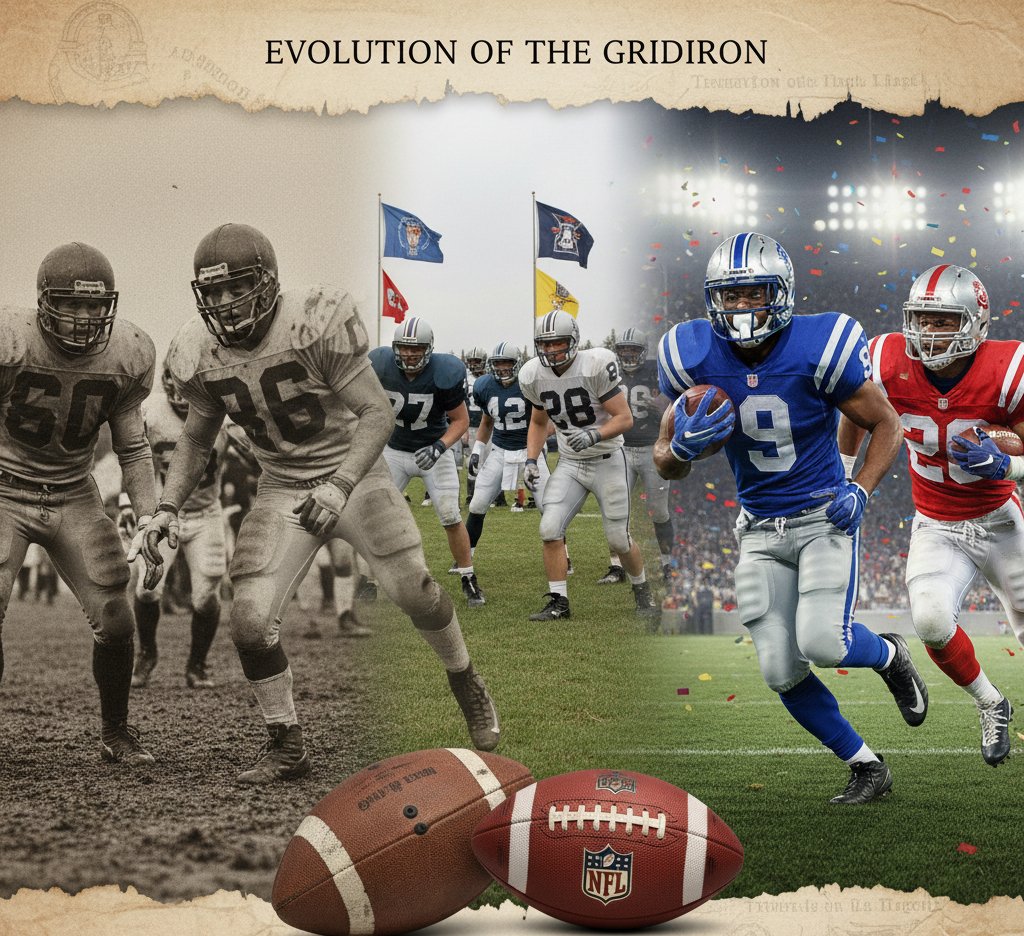Football is one of the most powerful and influential sports in the world. It is more than a game—it is a story of determination, teamwork, and legacy. Understanding a football life origins gives us a deeper appreciation for how the sport began, how it evolved, and why it continues to inspire millions.
This article explores the early beginnings of football, the rise of professional leagues, the cultural impact of the sport, and the lessons it teaches about life.
What Does A Football Life Origins Mean?
When we talk about a football life origins, we are not only discussing the historical birth of the sport but also the personal journeys of the players, coaches, and fans who live and breathe football. It represents:
The creation of football rules and traditions.
The development of college and professional leagues.
The life lessons players gain through discipline and teamwork.
The cultural influence football has on communities worldwide.
This combination of history and human stories makes football’s origins unique and deeply meaningful.
The Early History of Football
The origins of football go back to the late 19th century. At that time, American football was still closely connected to rugby and soccer.
1869: Rutgers and Princeton played the first official intercollegiate football game.
1880s: Walter Camp, known as the “Father of American Football,” introduced new rules such as the line of scrimmage, the snap, and the four-down system.
1890s–1900s: College rivalries at Harvard, Yale, and Princeton attracted thousands of fans.
These milestones laid the foundation for a football life origins. The game quickly moved from simple recreation to a structured sport with clear rules and growing popularity.
The Rise of Professional Football
College football was the steppingstone for professional leagues. As fans demanded more competitive games, organized football grew rapidly.
1920: The National Football League (NFL) was founded.
1930s–1950s: Teams like the Green Bay Packers and Chicago Bears gained national recognition.
1958: The NFL Championship between the Colts and Giants, often called “The Greatest Game Ever Played,” pushed football into the national spotlight.
1970: The AFL-NFL merger created one powerful league, paving the way for the modern Super Bowl era.
Professional growth is a key part of a football life origins. It shows how the sport evolved from college fields into stadiums packed with fans and broadcast to millions worldwide.
Football’s Cultural Significance
Football is not just about touchdowns or field goals—it is a shared experience that brings people together.
High School Football: Friday night games represent community pride and tradition.
College Football: Rivalries like Alabama vs. Auburn or Michigan vs. Ohio State are cultural events.
Super Bowl: Beyond the championship, it is the most-watched annual event in the United States, blending sports, music, and entertainment.
These traditions highlight why a football life origins matters. The sport has become a cultural pillar that unites people across backgrounds.
The Human Side of Football
Every football player has a story. Behind every highlight reel are years of dedication, sacrifice, and resilience.
Underdogs: Many players come from small towns or challenging circumstances, using football as a path to education and success.
Legends: Stars like Jerry Rice, Tom Brady, and Walter Payton turned hard work into legendary careers.
Adversity: Players often face injuries, personal struggles, and pressure, but overcoming them defines greatness.
This personal side of the game adds depth to a football life origins. Football is not just about winning—it is about character, perseverance, and growth.
Key Lessons from Football
One reason football is so influential is because it teaches life lessons that extend beyond the field:
Teamwork: Success depends on every player’s role.
Discipline: Training and consistency build excellence.
Resilience: Players learn to overcome setbacks and failures.
Leadership: Captains and coaches inspire others to reach their potential.
Community: Football connects fans, families, and entire towns.
These values are part of what makes a football life origins so impactful. They remind us that the game mirrors life.
Modern Football and Its Evolution
Football continues to evolve with time while staying true to its origins.
Technology: Instant replay, helmet innovations, and analytics improve safety and performance.
Global Reach: NFL games in London, Germany, and Mexico show the sport’s worldwide appeal.
Youth and Women’s Football: Growth in flag football and women’s leagues expands opportunities for all.
Social Influence: Players now use their platforms to raise awareness about cultural and community issues.
These developments show how a football life origins remains relevant in today’s modern world.
Major Milestones in Football’s Journey
To better appreciate football’s growth, here are key moments in its timeline:
1869 – First college game between Rutgers and Princeton.
1880s – Walter Camp establishes rules separating football from rugby.
1920 – NFL is founded.
1958 – “Greatest Game Ever Played” boosts football’s popularity.
1967 – First Super Bowl is held.
1970 – AFL-NFL merger.
1980s–1990s – Football gains global exposure through television.
2000s – Rise of dynasties like the New England Patriots.
2010s – Advances in player safety reshape the game.
2020s – Football grows internationally and embraces technology.
Each milestone is a part of a football life origins and shows the sport’s adaptability.
Why A Football Life Origins Still Inspires Fans
Football’s origins continue to resonate because they reflect values that never go out of style. Dedication, perseverance, and community are as important today as they were in the game’s early years.
From small-town high school fields to massive Super Bowl stadiums, football reminds us of the power of sports to unite and inspire.
Conclusion
The story of a football life origins is not just a history lesson—it is a tribute to passion, hard work, and resilience. Football began as a college pastime, grew into a national obsession, and is now a global spectacle. Along the way, it has taught valuable lessons about teamwork, leadership, and community.
Whether you’re a fan, a player, or a coach, understanding football’s origins gives you a greater appreciation of the game’s legacy. It proves that football is not only a sport—it is a way of life.

